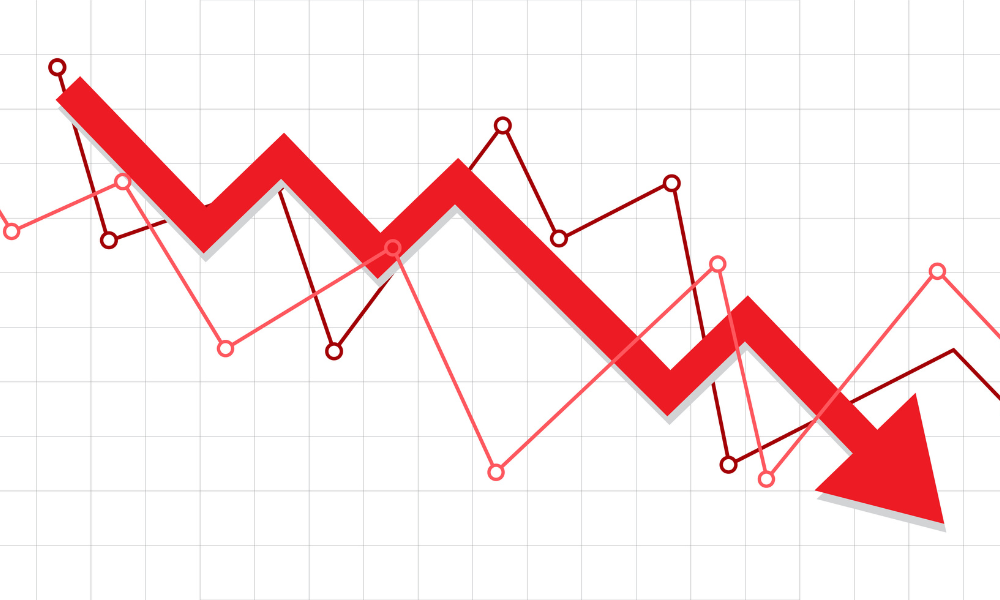Sales slump and affordability strain keep Toronto condos quiet while Montreal and Calgary attract buyers

The Greater Toronto Area (GTA) condo market continues to face significant challenges, with affordability concerns and shifting buyer expectations persisting despite declining borrowing costs.
Economists and real estate professionals anticipate a prolonged period of subdued activity, in contrast to more stable or improving demand in other major Canadian cities, according to The Canadian Press.
In March, approximately 1,400 condominium units were sold in the GTA, marking a 23.5 percent decline compared to March 2024.
Simultaneously, around 5,500 new condo units entered the market, increasing total active listings to nearly 4,700, as reported by the Toronto Regional Real Estate Board (TRREB).
This imbalance between supply and demand has led to a 1.6 percent decrease in condo sale prices across the GTA in early 2025, making condos the only housing segment to record a price drop during this period.
Brendon Cowans, a sales representative at Property.ca, attributes the subdued activity to affordability pressures. He notes that while interest rates have fallen, the difference is not substantial enough to significantly impact buyer behavior.
Cowans observes that buyers are becoming more selective, seeking greater value for their investment.
"They're like, 'Well, if I'm going to pay this, I want a bigger place, or I want the balcony to be a wraparound, I want this type of view,'" he says. "What used to be a nice-to-have is all of a sudden becoming must-haves."
The Canada Mortgage and Housing Corporation (CMHC) forecasts a slowdown in new condominium construction in Ontario due to weaker resale and rental markets, which have contributed to lower demand for pre-construction units.
BMO senior economist Robert Kavcic highlights that the GTA is particularly affected, given the high level of investor demand that has now diminished.
"They wanted to flip that at completion for an equity gain, but they can't do that anymore ... It's a much tougher environment," Kavcic explains.
According to Reuters, this retreat of investors has led to a significant drop in pre-construction sales, with new condominium sales down more than half in the first half of 2024 compared to the previous year, according to CMHC.
The decline in investor activity is expected to result in fewer new project starts, exacerbating the supply-demand mismatch in the housing market.
In contrast to the GTA, Montreal's condo market has demonstrated resilience, with sales up over 15 percent in March and nearly 17 percent higher in the first quarter of 2025.
The median price of a unit rose 5 percent to $420,000, remaining relatively affordable compared to the GTA's average of $682,000.
Kavcic attributes this stability to Montreal's market never becoming overly inflated and responding predictably to interest rate cycles.
Calgary's condo market is also performing better, with the Calgary Real Estate Board reporting 1,383 condo sales in 2025 so far, well above long-term trends for the first quarter.
This strength is partly due to affordability and an influx of buyers from Ontario seeking more reasonably priced housing options.
Vancouver's condo market presents a more balanced scenario. While the ratio of condo sales to active listings in the GTA is around 60 percent below the long-term average, it's about half of that in the Vancouver region, indicating a less severe supply-demand mismatch.
TD economist Rishi Sondhi notes that Vancouver's condo construction is holding up better, likely supported by more resilient ownership demand in recent years.
However, Vancouver broker Randy Ryalls points out that developers are cautious, with many delaying new projects due to economic uncertainties.
"Anything that doesn't have to be built is not being built," Ryalls says. He warns that this could lead to a shortage of new product in the coming years as the market recovers.
The GTA's condo market may face supply shortages beyond 2026 due to the current slowdown in pre-construction activity.
A report by Real Estate Management Industry Network (REMI) indicates that the pause on new pre-construction project completions beyond 2026 could lead to a supply gap, with few new project construction starts in 2023 to 2025 drastically impacting the supply of completions from 2027 to 2029.
This potential shortage could result in price spikes and renewed affordability issues in the future.



